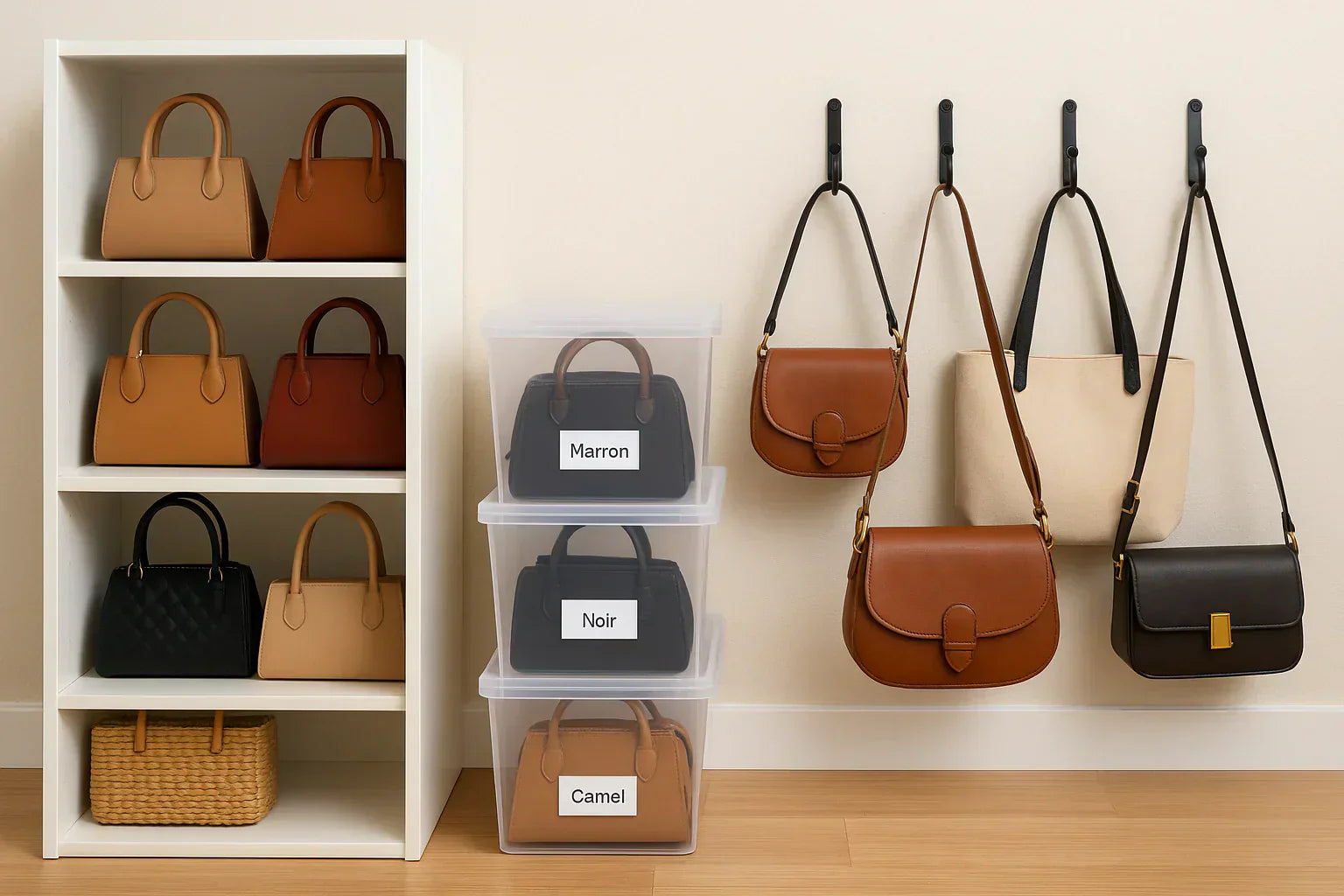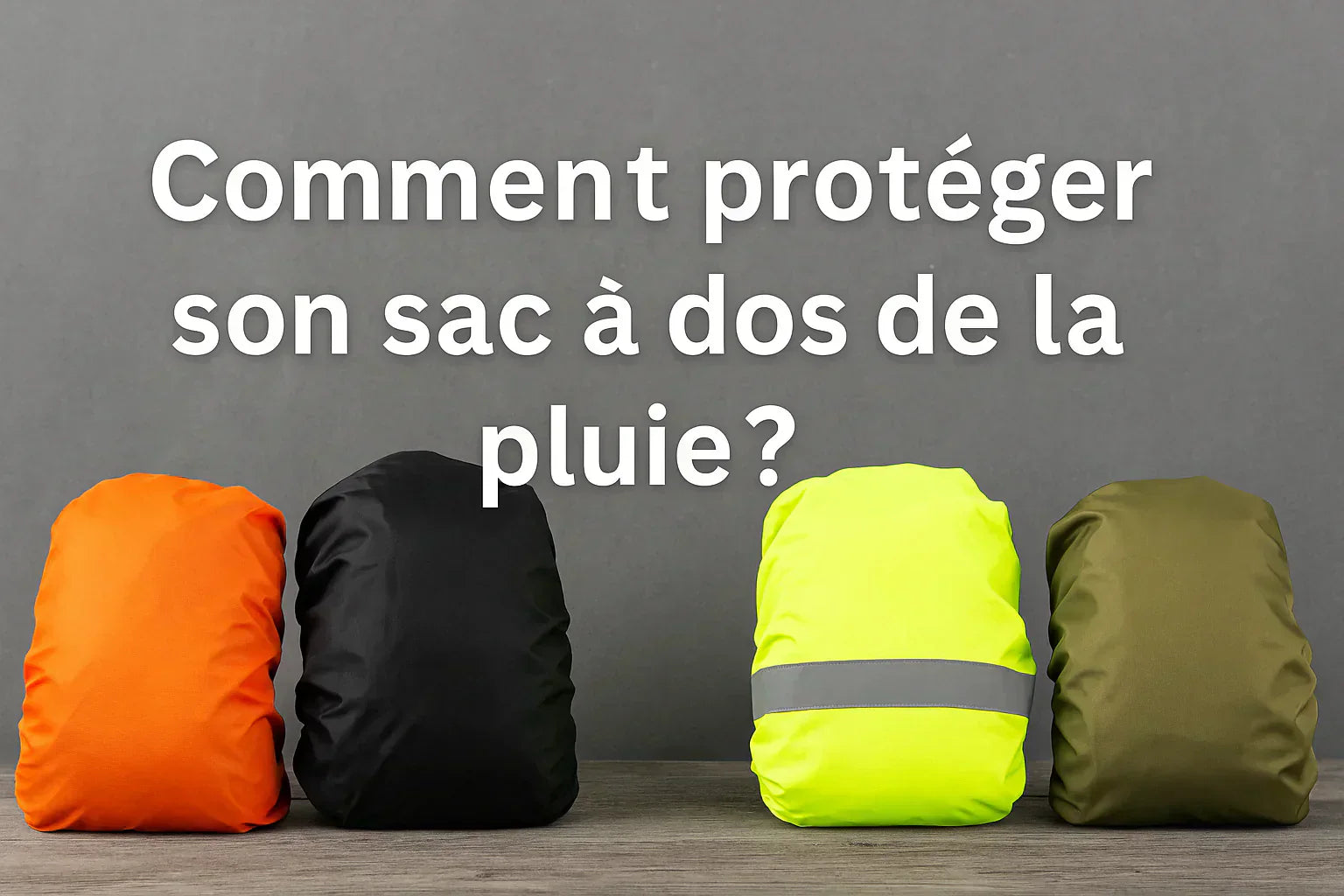
How to protect your backpack from the rain?
Have you ever seen your backpack get soaked in a sudden downpour, jeopardizing your belongings and your comfort? Protecting your backpack from the rain is crucial to preserving your gear and optimizing your outdoor activities.
Discover in this article effective solutions , from waterproof covers to emergency tips, to choose the best protection according to your needs and activities.
Summary
- The importance of protecting your backpack from the rain
- Effective solutions for protecting a backpack from rain
- How to choose a waterproof cover suitable for your bag
The importance of protecting your backpack from the rain
Why rain protection is important
Rain seeps in through the seams and zippers. The moisture damages the leather , distorts the fabric, and makes the bag heavier.
Water threatens the integrity of transported equipment. Clothing, electronics, documents, and food suffer irreparable damage without adequate protection.
Situations requiring effective protection
Hiking in the mountains or in prolonged rain requires a waterproof cover and optimal protection for the contents. The same applies to protecting sensitive or expensive equipment such as computer hardware.
Humid environments test the durability of backpacks. Hiking in the rain, crossing rivers, or unpredictable weather conditions make protection essential .
The consequences of a waterlogged bag
A wet bag makes the carrier heavier. This extra weight increases fatigue over long distances.
| Bag volume | Dry weight | Weight after rain |
|---|---|---|
| 20-30L | 0.5-0.8 kg | 1.2-1.5 kg |
| 40-50L | 0.9-1.3 kg | 2.2-2.6 kg |
| 60-80L | 1.5-2 kg | 3-4 kg |
Humidity gradually degrades the waterproofing of fabrics. Seams weaken, water-repellent treatments wear off over time, and water penetrates more easily with each exposure.
The impact of humidity on your hiking gear
Sensitive items suffer irreversible damage. Electronics cease to function, clothing loses its warmth, and documents become illegible.
- Electronic casing : Devices such as GPS units or cameras are subject to short circuits.
- Feather clothing : Loss of insulating properties and risk of mold
- Paper map : Reading rendered impossible due to ink degradation
- First aid : Damaged tablets or wet compresses
- Dehydrated food : Moisture absorption renders food unusable
Protecting your equipment is a smart investment. Good protection prevents costly replacements and extends the lifespan of moisture-sensitive equipment.
Effective solutions for protecting a backpack from rain
The waterproof cover: a simple and effective solution
A rain cover for your backpack is the most common solution for protecting it from water. It completely covers the bag and prevents water from getting in. Easy to store, it can be put on very quickly.
The cover is installed by sliding the bag inside like a sleeve. Elastic bands or a drawstring adjust the fit. Water beads off the surface without penetrating. Simply remove it when sheltered. Discover our range of rain covers to protect your belongings.
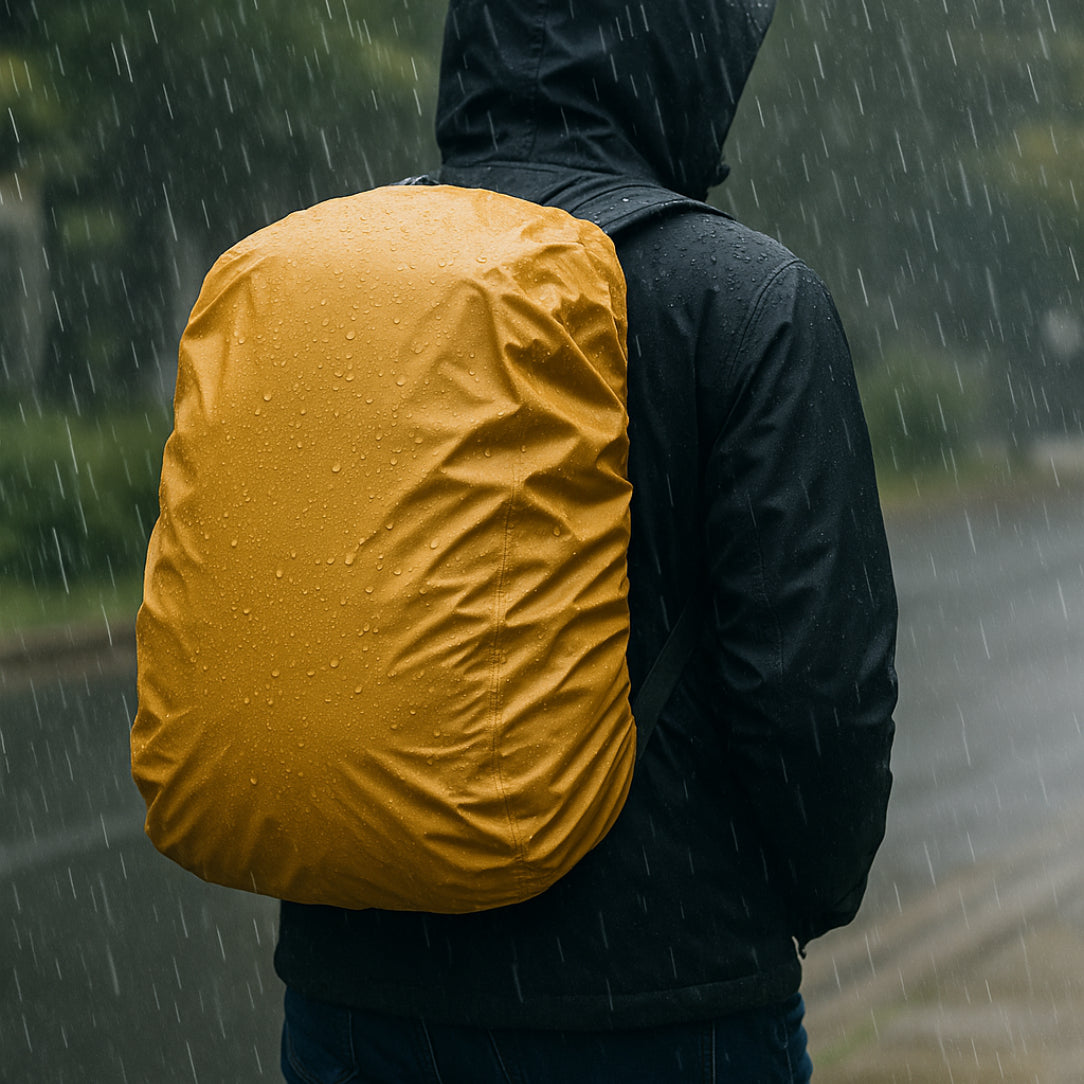
Waterproof backpacks to protect the contents
Waterproof bags are used to protect valuable contents. They form a second barrier against moisture. When used with the outer cover, they offer double protection.
Store electronic devices in individual bags. Group clothing by category. Important documents deserve an airtight container. Dry goods require a secure seal.
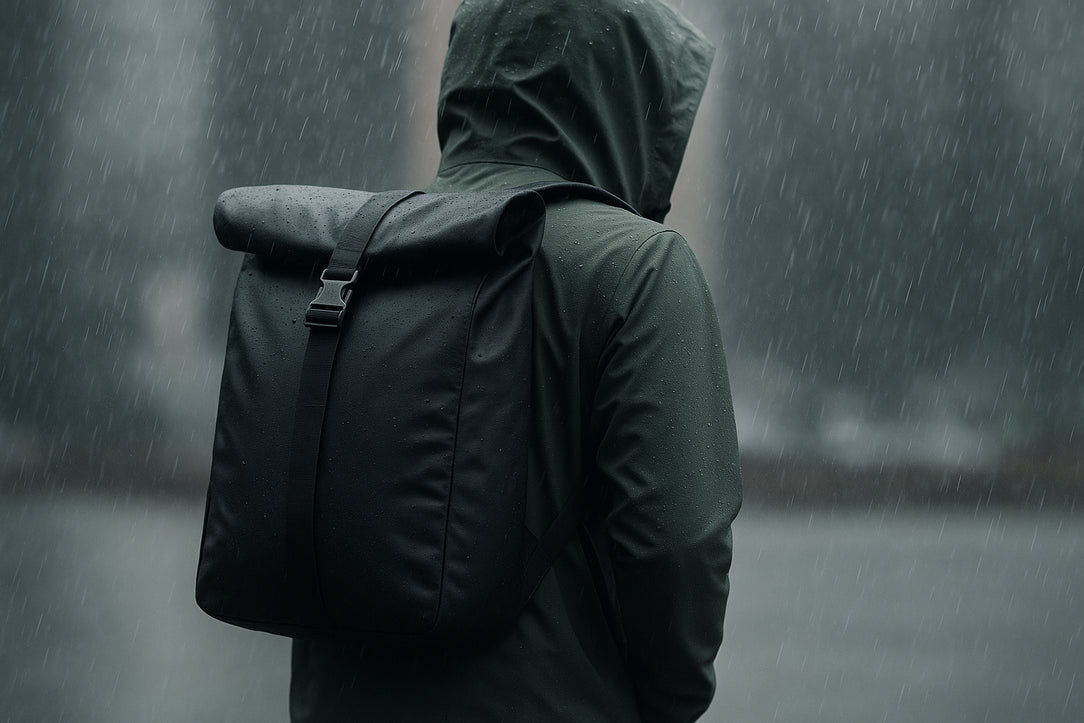
Waterproofing the bag itself
Treating the fabric enhances its water resistance. Apply a water-repellent product to the surfaces. Repeat the process according to usage conditions.
Water-repellent sprays penetrate the fibers. Waxes harden the fabric. Machine treatments impregnate the material evenly. Their effectiveness varies depending on the application.
Other alternative solutions against rain
Rain ponchos envelop the hiker and their pack. Lightweight umbrellas protect the head and upper body. They are suitable for urban travel or on dry trails.
Trash bags temporarily isolate the contents. They fit easily into pockets. Their thinness limits leakage. Reserved for emergencies where no alternative is available.
How to choose a waterproof cover suitable for your bag?
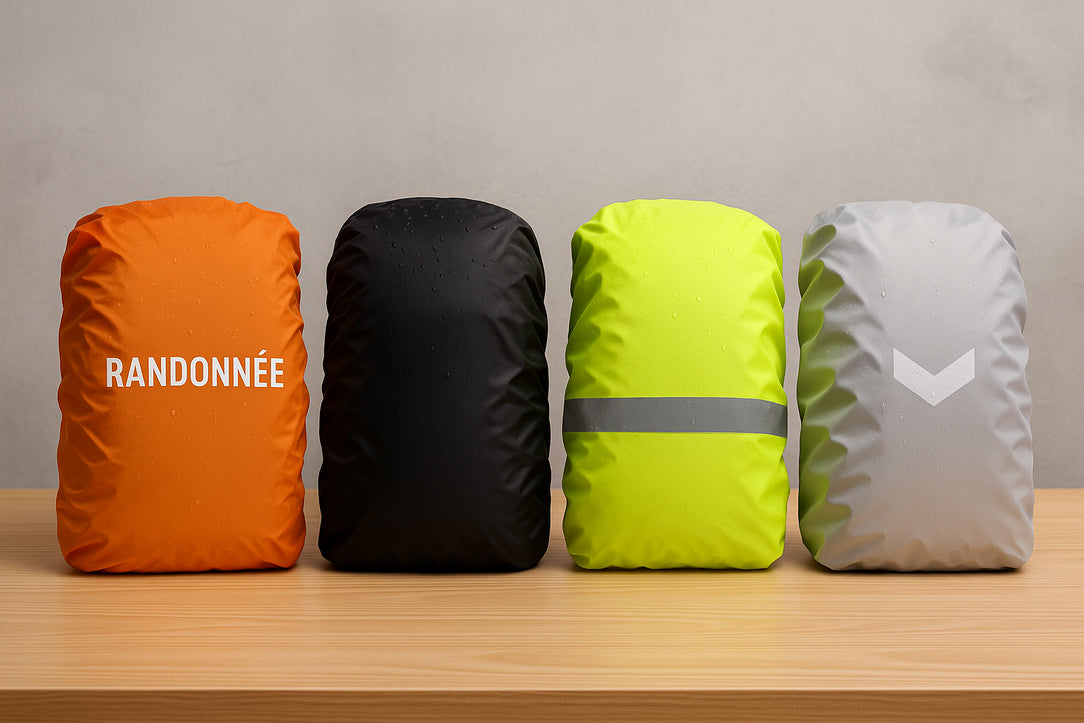
Important selection criteria
Several factors determine the choice of a cover. Size, weight, and materials all influence the effectiveness of rain protection.
The cover should completely enclose the bag without interfering with the shoulder straps. A precise fit prevents it from being torn off by the wind. A lightweight model remains discreet in the luggage without adding unnecessary weight.
The materials and their level of impermeability
Waterproof covers use technical fabrics. Nylon and polyester dominate the market for their water resistance and durability.
| Material | Water resistance (mm Schmerber) | Specific advantages |
|---|---|---|
| PU-coated polyester | 5000 to 10000 | Balance between lightness and waterproofing |
| 210D Nylon | 3000 to 8000 | Abrasion-resistant, inexpensive |
| 420D Nylon | 8000 to 15000 | Reinforced for heavy-duty use |
| Cordura | 10,000 to 20,000 | Extremely robust, for extreme conditions |
| PVC | 10,000 to 30,000 | Waterproof but rigid and heavy |
The Schmerber rating indicates a fabric's resistance to water penetration. A minimum value of 5000 mm is suitable for moderate rain. Above 10000 mm, the cover can withstand prolonged downpours.
Features to prioritize
Certain practical details improve everyday use. Quick installation and optimal visibility make the cover more useful when hiking.
- Choose a waterproof cover with a volume suitable for your bag (e.g., 40-60L).
- Opt for a lightweight model (less than 100g for technical versions)
- Choose a durable material (siliconized nylon or polyester with PU coating)
- Opt for an elastic adjustment system or a drawstring
- Choose bright colors or reflective strips to be seen
- Check for a drain hole to remove the water.
- Check the waterproofing via the Schmerber index (10,000 mm minimum)
- Demand an integrated carrying pouch for immediate storage
- Evaluate the abrasion resistance thanks to the Cordura fabric
- Test the installation while wearing gloves to check the ergonomics.
Protecting your hiking bag from rain starts with choosing a waterproof cover that is appropriate for its size.
Supplement your gear with waterproof bags for your sensitive items and regularly check its waterproofness. Good preparation prevents unpleasant surprises: find your ideal solution to keep your belongings and comfort intact, even in the downpour.
